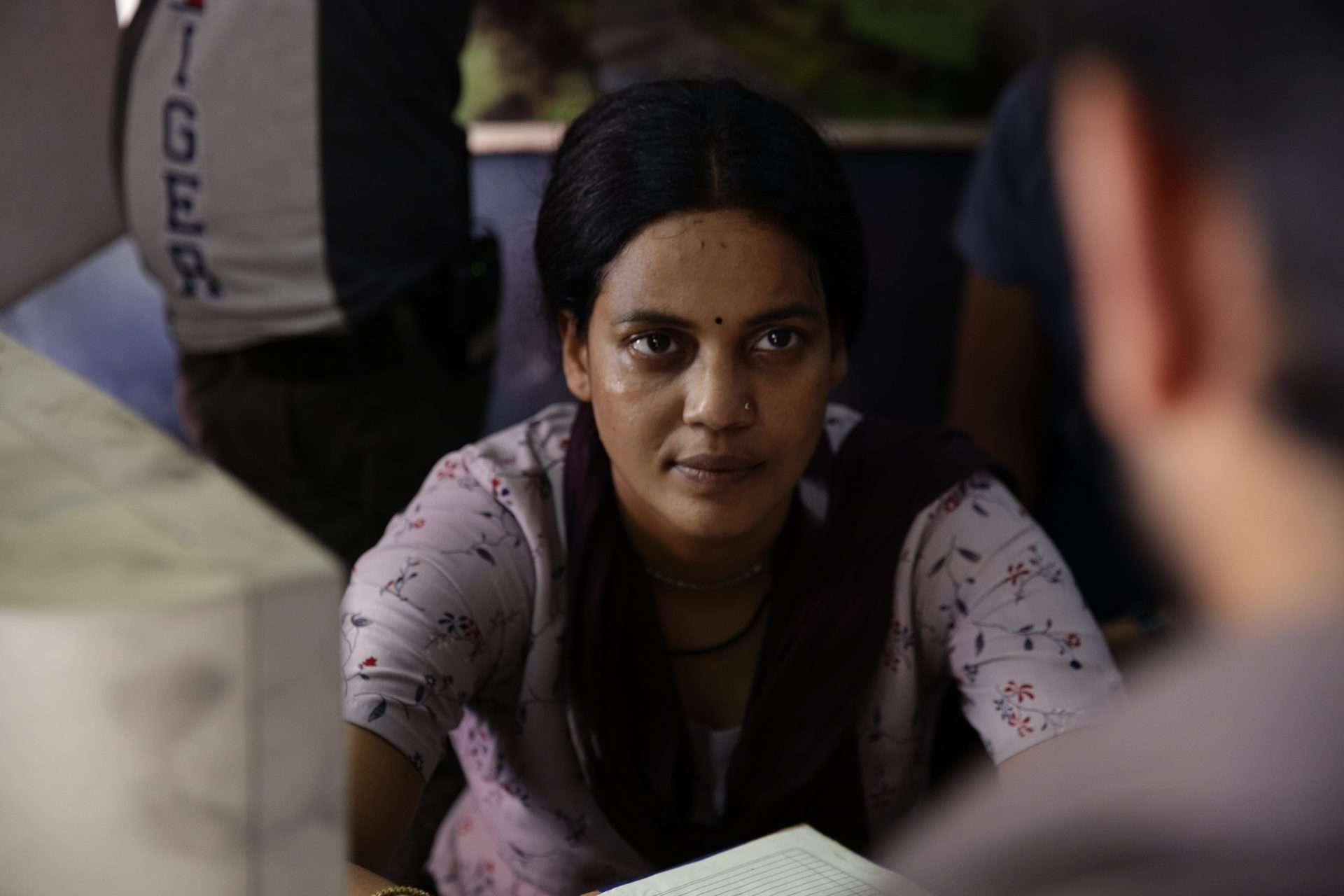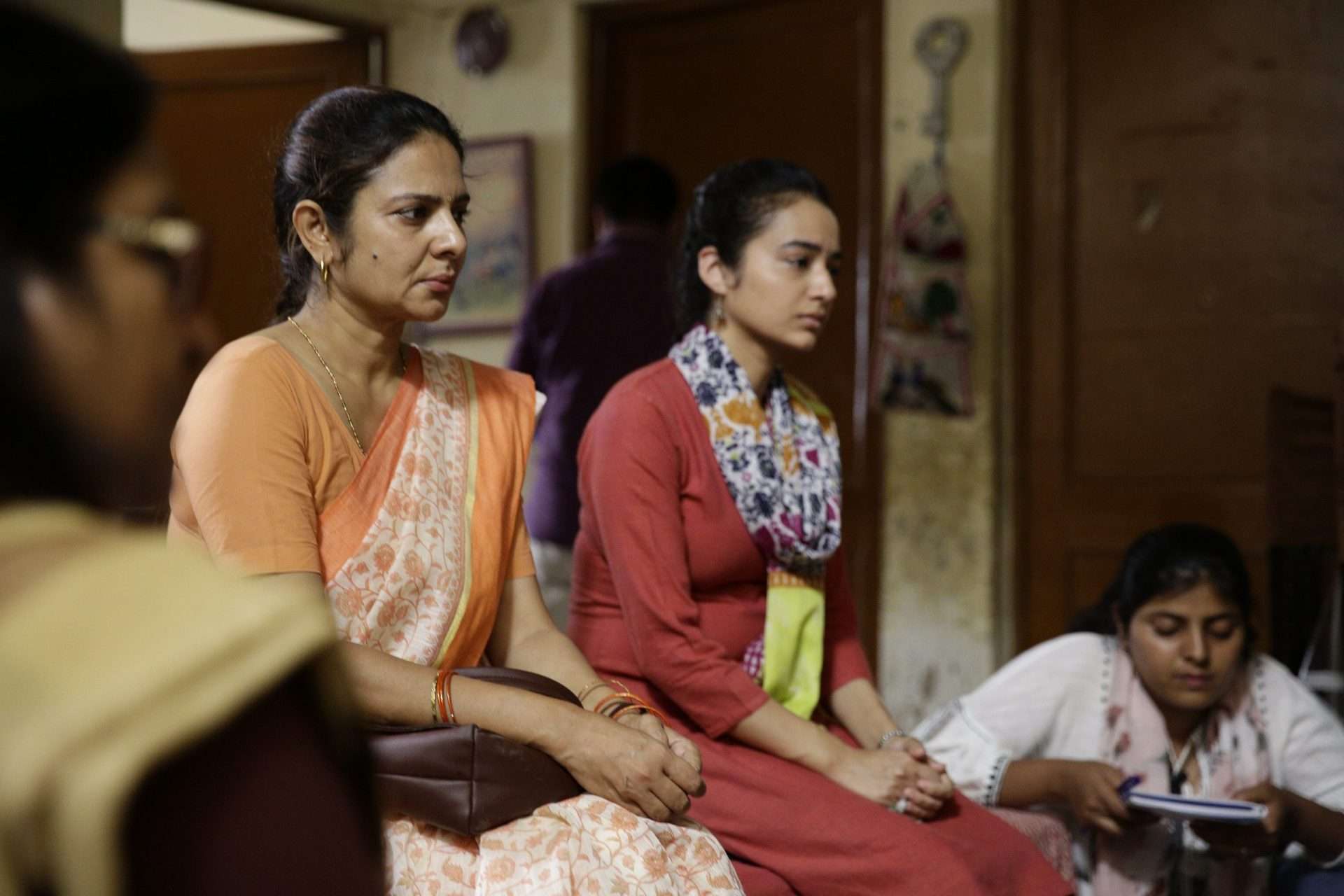Director Kanu Behl talks about the idea of getting into the rhythms of time and space that his characters feel. Once the audience is in there, they start to live their lives outside of the story and the plot. As a viewer, it is different from a typical Hindi film in that it feels like accidentally stumbling upon this narrative instead of it being narrated by a storyteller. The presence of negative space in Behl’s “Agra” is evident, culminating in total detachment from the addiction to story and narrative. You enter the world to such an extent that it stays long after it has finished. You become a part of it.
“Agra” essentially deals with sexual repression, the intimacy of spaces, and the living arrangements in a post-liberalized India, among a myriad of other things. Through the character of Guru (Mohit Agarwal), Behl showcases the sexual frustrations of the underprivileged Indian youth. It is quite impossible to empathize with him because he is doing some unacceptable and dastardly things, stretching it to attempting incest. Still, the conundrum lies therein that the use of colors in the film facilitates an understanding of Guru’s psyche. You do not feel guilty about the empathy because there is an LSD trip-like montage of colors, which, in my opinion, ensures that you reset your prejudices.
The film delves into Guru’s profound disillusionment, rooted in a deep-seated lack of self-worth. This emotional turmoil, coupled with repressed sexual desires, culminates in a state of sexual depression. Guru’s frustration works on multiple levels. His father committed infidelity and the creation of structured living spaces in his household. His father lives with his new wife upstairs, while Guru resides with his mother downstairs.

Here, the structuredness of living spaces is very evident, where clearly, both at a symbolic and a physical level, they are in an inferior position compared to his father’s supposed new family. On top of it is the apparent lack of privacy, which results in Guru wanting to marry and attempting to swallow phenyl as a sacrifice to that cause. The only space where Guru gets privacy is the washroom, where he indulges in his sexual urges, thereby portraying effectively one of the finest depictions of sexual repression in a sexually repressed country.
His frustration is also directed against his mother, whom he disregards due to her lack of agency in the household, even over his father. It’s a classic anti-freudian attempt at understanding the relationship between a mother and a son. His frustration is hinted at his possible failure in wooing his colleague, which results in him hallucinatingly fantasizing about her. His mounting frustration over his inability to attract another sexual partner leads to a horrific act of incest against his sister. And this is where Kanu Behl depicts the starting point of sexual assault in the family. It is sexually repressed men like Guru who indulge in certain acts, knowing fully well the consequences thereof. The solution lies at a societal level.
Guru’s urges finally hit a crescendo, and his frustrations find a cooling point in him finding a muse in Priti (Priyanka Bose), who satisfies his sexual urges. It’s a feral kind of intimacy that Guru depicts arising from his lack of privilege in understanding the basics of consent and physical intimacy. It is unclear whether Priti loves him or not. There is no absolute truth. It’s a complex blend of transactional elements and intimacy with ambiguity about her feelings.
After their lovemaking, during which he inquired about her feelings, Guru realized that both transactional and genuine love co-exist among them, and there may be no pure love. It’s a tradeoff between physical intimacy and physical space to be inhabited on Priti’s part. It is quite possible that physical living space is the sole reason for Priti’s sexual escapades with Guru. Guru realizes it. And that realization sets the stage for the family’s final journey towards creating the five-story monument, symbolizing a fusion of transaction and love. In an overpopulated country like India, it exposes the lack of living spaces and showcases the complex realities of our times.

The film is very symbolic, with the presence of the phallic and vulvic throughout the film. The cafe is showcased as like entering a vagina. Such phallic motifs are scattered throughout the house, whether in the fabric of the bedsheets or the overall design of the space. Sex, sexuality, and sexual repression are littered throughout the film, thereby immersing you further.
“Agra” is a film that has been made with no holds barred. It talks about sexual repression in a setting without giving the characters the vocabulary to express it. The narrative showcases the perils of polygamy and the intergenerational trauma caused as a result of it. It showcases the value of consent from the point of view of privilege. It also depicts sexual depression, exploring its psychological depths to the breaking point of pure madness, and it is such an innate desire that it feels unreal to a certain extent. Cinema really does hold a mirror to society, exposing the cracks in it. It talks about sexual violence, including the origins of sexual assault with family members, reminiscent of cases registered in India. Lessons are not preached. They are to be deduced. For each his own.
The film excels in that you detest Guru, but you do not detest his circumstances. Nuance has been layered and bolted in this film. You go in expecting an avant-garde piece of work, and you come out as enlightened individuals. For an atheist like me, such works become a spiritual exercise, genuinely transcendental. It exposes our privileges and biases, providing us an avenue to understand and seek our spiritual truth.
You understand that humans do not inhabit the art. They are the art.






